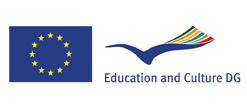The reason why
A recent report by the European Universities Association (EUA) on rankings and higher education policies in Europe points to the fact the one of the main dangers resulting from the existence of rankings is that efforts by European Universities to improve their positions in the rankings may keep them from concentrating on elements of their mission that do not directly influence the ranking scores, namely teaching and learning. Film and art schools have always represented a differentiated case in terms of higher education development and pedagogical approaches, namely because these schools have since their inception focused on learner centred and problem based learning with a strong focus on training through project in development as a key driver of their activities.
From another point of view, recent reports from European Commission highlighted the importance and relevance from the creative industries as a strategic vector of development of economy, since there is one of the principal sectors that contributes most to the European GDP, with an average of growing of 12% (approximately) in the last few years, expecting that will grows in the same way for the next years, which will be responsible for a large number of employment.
In fact, schools have always nourished teaching and learning with a strong focus on creativity, but have also been weakened by their difficulty to adhere to more normalized organizational structures and approaches to higher education. Moreover, the schools, teachers and students are more concentrated in teaching and learn the best way how to produce with the highest possible quality, to find out the best way to transform their creativity into a work aesthetically perfect, often forgetting the importance and relevance to be focused on the market reality with a weak market and public orientation and the distribution of their works.
By focusing on film teaching and learning, the CIAKL II project seeks to address both these schools and the film and media production industry in general need for the provision of training that introduces business and entrepreneurship oriented skills as a key part of training in this area, but also the clear need for collaborative solutions that promote the matching between companies needs and students projects, through universities platforms and in a knowledge and competences transfer, though bridging the gap between creative and innovative content and approaches being developed at schools and industrial project development practices.


